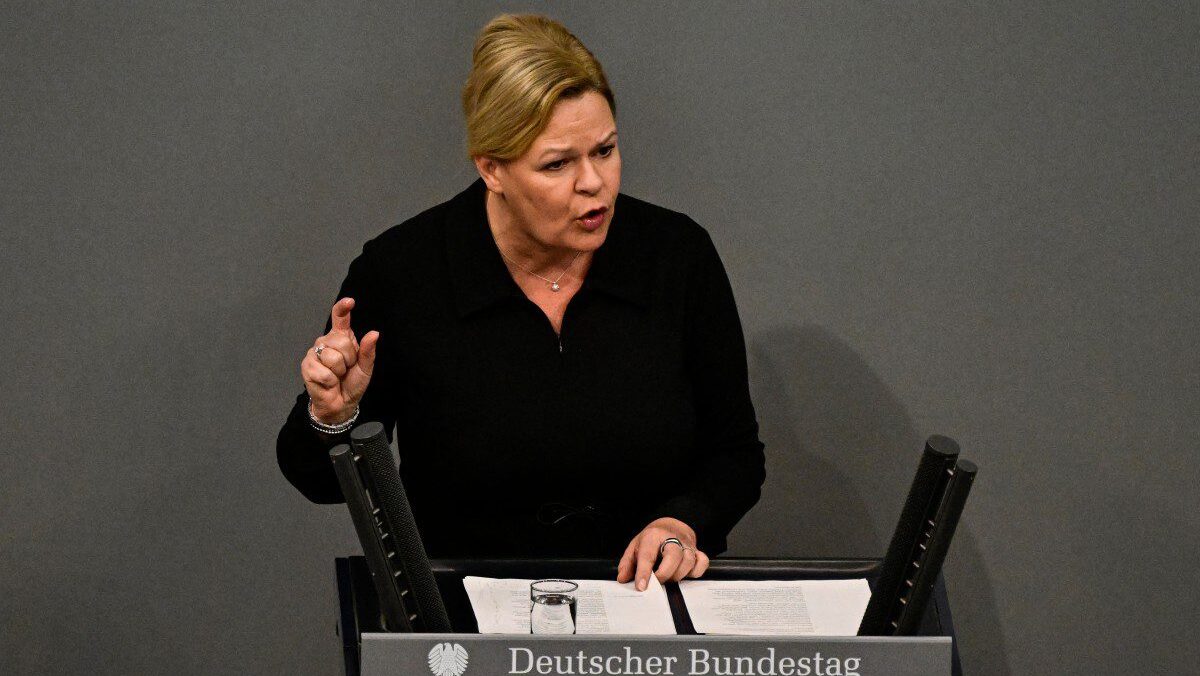Senior German intelligence officials and the country’s interior minister are plotting travel restrictions and even a potential purge of the civil service to ‘smash right-wing extremist networks’ as Berlin’s traffic light coalition struggles to fight a rising tide of nationalism and public discontent.
The so-called act of ‘defensive democracy’ envisions a beefing up of th Office for the Protection of the Constitution’s (BfV) authority and was announced Tuesday by social democrat minister Nancy Faeser, who has written for a far-left Antifa magazine with links to extremism, alongside BfV chief Thomas Haldenwang and Holger Münch, president of the federal criminal police.
“We should treat right-wing extremist networks like organised crime groups,” Faeser said.
Germany has defined the anti-globalist Eurosceptic Alternative für Deutschland—AfD—party as falling into the category of ‘right-wing extremism’, and its youth wing, Junge Alternative (JA), was deemed ‘extreme right-wing’ by a federal German court only last week. This definition already gives the BfV the legal right to spy on the party and its members.
Under the sweeping 13-point plan, those labelled ‘right-wing extremists’ will face a plethora of restrictions, including on their ability to purchase firearms, and—in a throwback to communist times—the plan will “prevent right-wing extremists from entering and leaving the country as much as possible.”
The plan itself specifies:
Right-wing extremist actors engage in intensive, even cross-border exchange—at concerts and martial arts events, at training events and seminars. This is where they make contacts, forge plans and try to give their inhumane messages more reach. Right-wing extremist hatred must neither be imported into or exported out of Germany. For this reason, legal instruments restricting the freedom of movement of right-wing extremists must be applied even more consistently.”
Faeser expressed specific concerns that the judiciary could be targeted for infiltration by nationalists, and the plan also calls for a purge of “constitutional enemies” from public service in general, removing the judicial process for separating public servants with undesirable political opinions from their positions and making it a case of simple disciplinary action.
To protect Germans from internal and external actors who “manipulate the free formation of opinions among people in our country,” the plan envisions monitoring of internet sites and the authority to order the taking down of offensive material—limiting the free formation of opinions as a way to protect it. The state has also initiated a collaborative project with the Bertelsmann Foundation‚—an NGO—called “Forum Against Fakes” aimed at identifying “disinformation.”
The strengthening of ‘democratic values’ also includes educating the populace, specifically targeting sports clubs where, the report says, “right-wing extremism, antisemitism, and other forms of group-related hostility become visible” with educational efforts.
A key part of Faeser’s plan is surveillance and disruption of the finances of ‘right-wing extremists’—or, as the interior minister put it: “We want to destroy right-wing extremist networks, deprive them of their income and take away their weapons.”
The decision comes after a ratcheting up of pressure on the AfD including a threatening letter sent by one German commercial bank to a customer donating to the party as the populists managed to double their vote share in municipal elections in Berlin last week despite weeks of media-hyped protests.
The policy change follows an undercover media hit-piece on the AfD by the Soros-backed, state-funded publication Correctiv which claimed that senior party officials strategised about the repatriation of millions of migrants in conjunction with members of the Identitarian Movement.
Despite Correctiv‘s hit-piece coming under heavy journalistic fire for its inaccuracy and media spin, Faeser cited it during Tuesday’s announcement with the plans to combat the Right. Parts of the plan have been in the works for years, according to Tagesschau.
German intelligence is estimated to have 38,000 citizens listed as ‘right-wing extremists’ with Faeser saying that the recent anti-AfD protests have given her and her government a mandate to act.
The past year of political and economic turmoil in Germany has contributed to an unprecedented rise in the AfD to second place in national polls.






